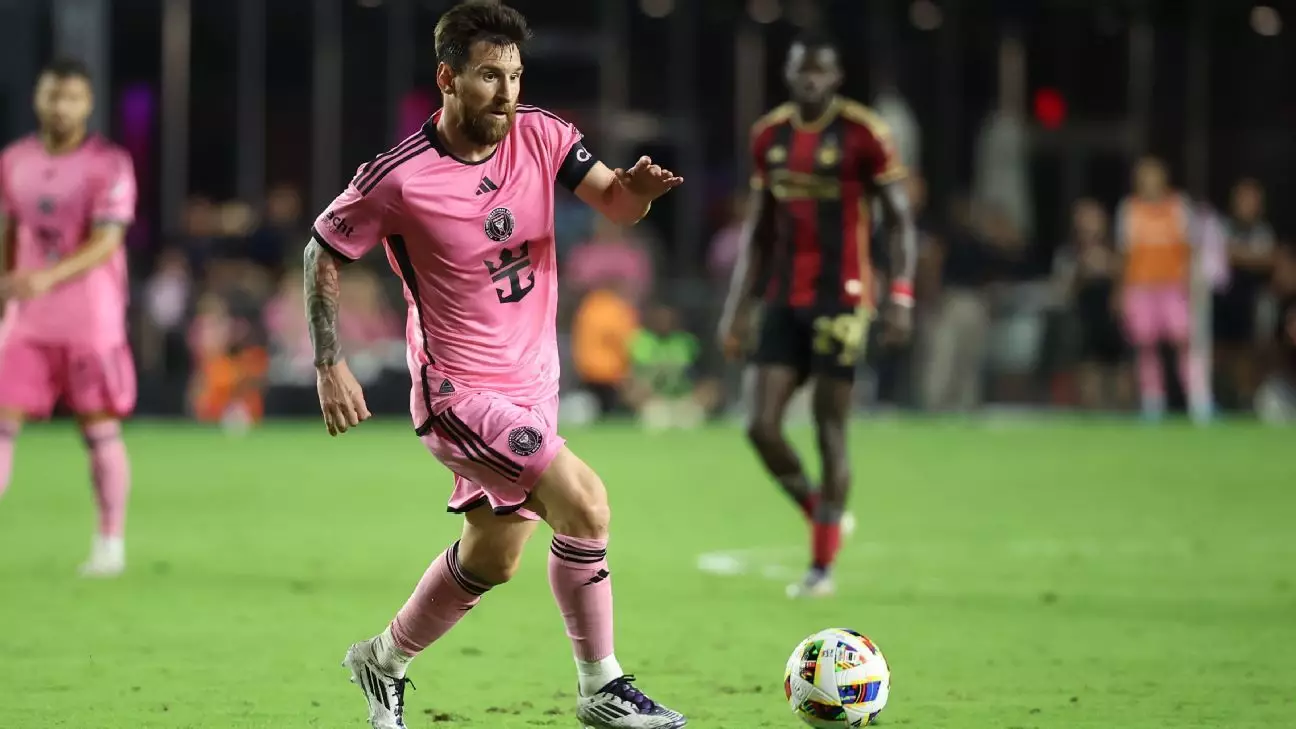The arrival of soccer icons like Lionel Messi, Sergio Busquets, Jordi Alba, and Luis Suárez at Inter Miami sent shockwaves across Major League Soccer (MLS) and left fans brimming with excitement. Managing owner Jorge Mas acknowledged, “We have (already) succeeded,” reflecting on how the presence of such superstars heralded a new era for the sport within the United States. On the surface, it seemed that Inter Miami’s ambitions had materialized, elevating the team’s profile both commercially and athletically. However, the dichotomy between commercial success and performance on the pitch became increasingly apparent as the season progressed.
Inter Miami’s regular season performance was nothing short of spectacular, amassing a record number of points and securing the Supporters’ Shield. Subsequently, many began to speculate about their place in the annals of MLS history, pondering whether they could be mentioned alongside the legendary teams of the past. However, their swift exit from the playoffs at the hands of Atlanta United raised vital questions about how to measure a season’s success—a challenge that pits statistical prowess against real-world outcomes.
While the franchise has undoubtedly revitalized the sporting landscape, one must distinguish between historical significance and a fleeting moment in time. Analyzing Miami’s 2024 campaign reveals a stark contradiction: immense talent combined with an abrupt end to their playoff aspirations. This juxtaposition draws attention to the larger narrative that not all triumphant seasons are crowned with silverware.
To properly assess Inter Miami’s performance in relation to the league’s illustrious past, one cannot overlook Toronto FC’s 2017 campaign, which stands as a benchmark in MLS history. They executed an unprecedented domestic treble, collecting the MLS Cup, Supporters’ Shield, and Canadian Championship. The team, replete with stars like Jozy Altidore and Sebastian Giovinco, showcased an unmatched depth and tactical acumen under the guidance of Tim Bezbatchenko. Toronto’s unprecedented success set a high standard and firmly entrenched the team in the league’s legacy.
Another notable mention is the dominance exhibited by D.C. United back in their glory days. The team not only thrived domestically but also achieved recognizable success on a continental scale. Their victories in the 1998 Concacaf Champions League and Copa Interamericana solidified them as a formidable force in North American soccer, which adds a layer of historical heft absent in Miami’s recent exploits.
Examining the accolades garnered by other franchises—such as LAFC’s remarkable dual victories in 2022 or the LA Galaxy’s struggles before their long-overdue glory in 2011—provides insight into what it takes to be deemed elite within MLS. LAFC crafted a cohesive blend of established players and burgeoning talents, effectively winning both the Supporters’ Shield and MLS Cup in a single campaign. The perfect synergy of experienced leadership and youthful exuberance positioned them prominently within the league’s hierarchy.
Atlanta United also merits attention with its remarkable 2018 season, where they topped the single-season point record, performed brilliantly in the playoffs, and greatly electrified the soccer scene in the U.S. Their stars—Martínez, Almirón, and Nagbe—led the way, culminating in an impactful campaign that won the team an MLS Cup and an indelible place in fans’ memories.
As the 2024 season for Inter Miami unfolded, it became evident that a paradox existed; they were seen as the foremost regular-season team but faltered when it mattered the most in the playoffs. The narrative of the team losing in the first round starkly contrasts the initial buzz surrounding Messi’s high-profile arrival. Their inability to translate a stellar regular season into playoff success stirs frustration, leading fans and analysts alike to ponder what could have been.
It is imperative to note that while Miami’s regular season performance encapsulates an elite tier of play, it lacks the comprehensive achievement that characterizes the elite teams of MLS history. The gap between extraordinary potential—as showcased by star-studded lineups—and real accomplishments on the field highlights a larger narrative about what it means to build not just a team, but a legacy.
With the conclusion of the 2024 season, Inter Miami’s burgeoning era invites reflection on both their potential and their unfulfilled promise. While they have invigorated the league and expanded soccer’s footprint in America, their playoff exit magnifies the distinction between building a thrilling roster and executing results in high-pressure situations. As fans and analysts dissect the performance, it becomes clear that labels of greatness require more than superstar acquisitions. They necessitate a proven ability to perform in critical moments across the entirety of a season, both domestically and beyond. The journey for Inter Miami is far from over, but as they look ahead, lessons from 2024 will undoubtedly inform their future successes or failures on the pitch.

